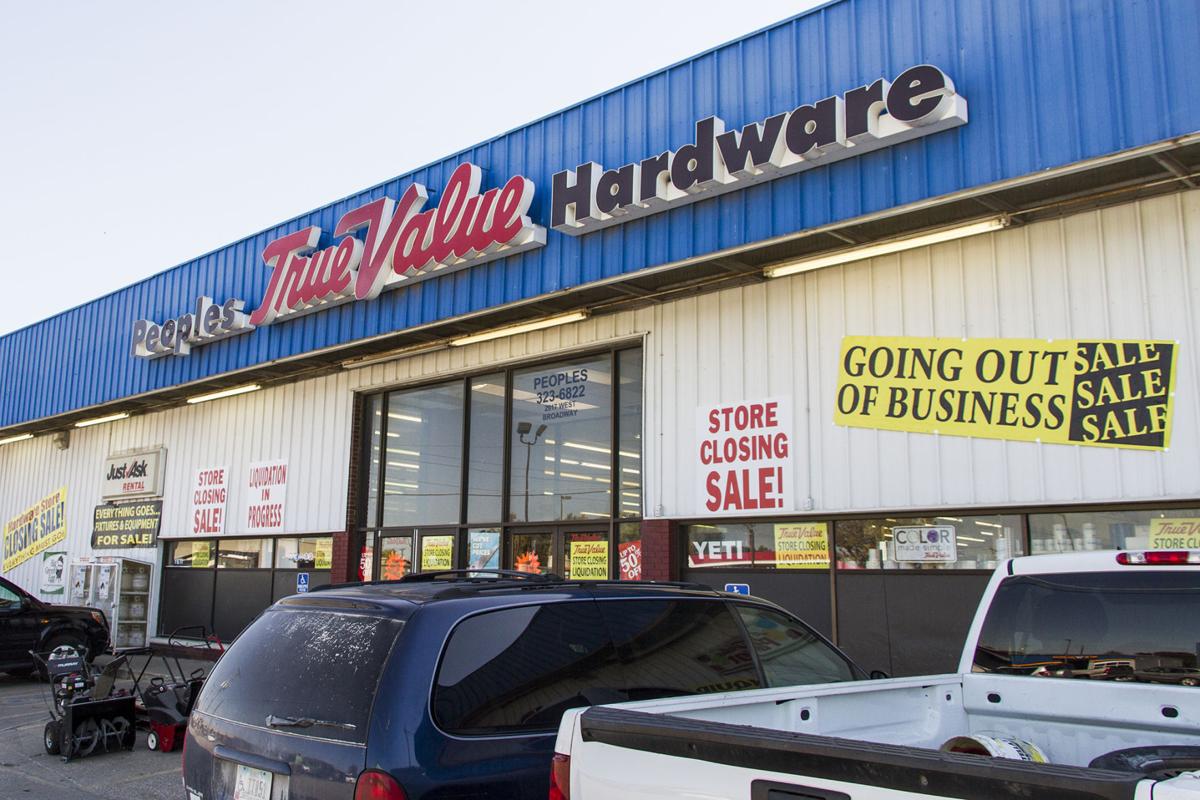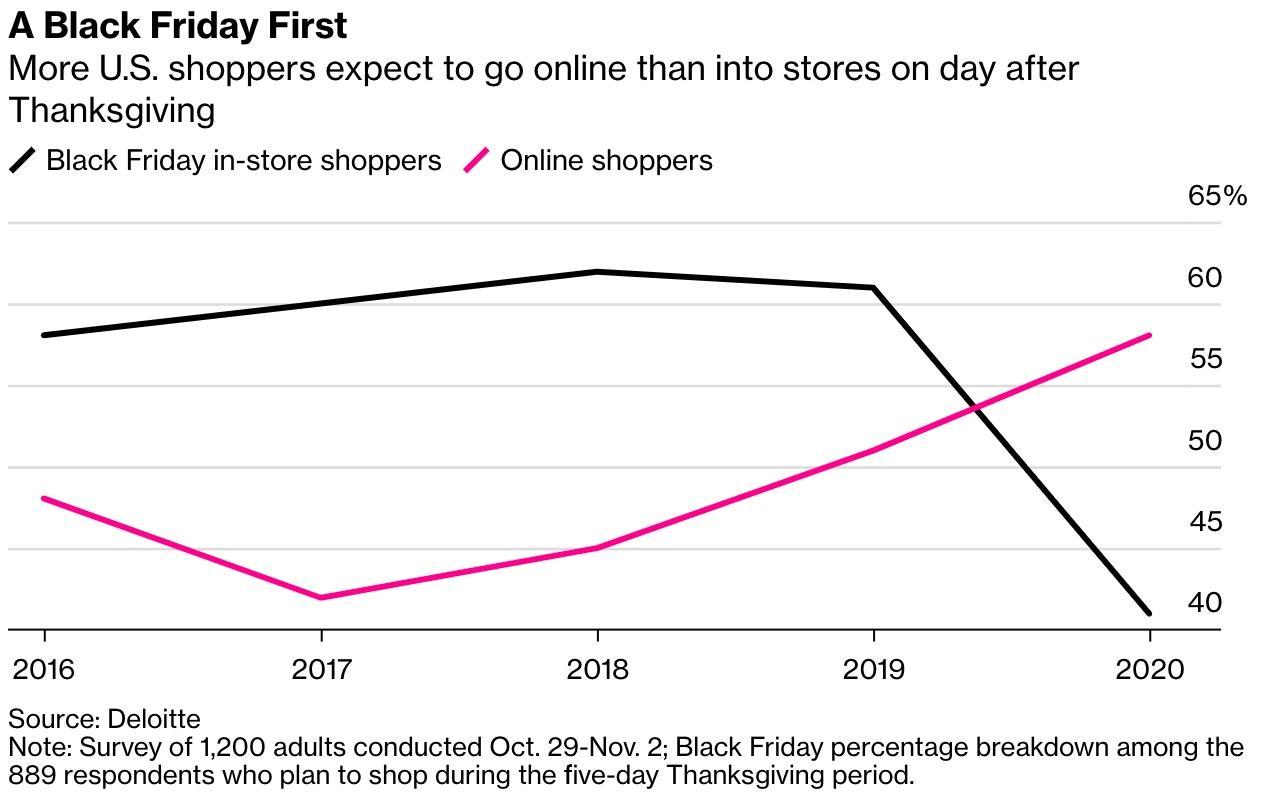 |
| Expect Many Local Stores To Close |
This year due to the pandemic much of the world is in a semi-shutdown. This has caused online shopping to surge to the point where UPS was forced to impose shipping restrictions on major retailers. On Cyber Monday with delivery networks stretched thin, delivery drivers were instructed not to pick up any packages from six major retailers, including L.L. Bean Inc., Hot Topic Inc., New Egg Inc., and Macy's. A memo confirmed by WSJ sources as authentic. stated: "No exceptions." The limits imposed by UPS highlights how the influx in packages has put its shipping network under stress and its commitment to putting its regular customer base first.
 |
| Abandoned Malls, A Canary In A Coal Mine |
Small business is the backbone of America, it is where people work and corruption is scarce. It is the workhouse that gets things done and a place where the numbers still make sense. Unlike government that can simply cover mistakes and losses by raising taxes or expanding its deficit, small businesses get smacked square in the face by reality. For small businesses, this is crunch time. Sadly, in my area, online shopping coupled with covid-19 are forcing businesses to close that have been around for decades, this is not just destroying newly formed endeavors. The chart below indicates that when all is said and done more will be forced to close their doors.
Feeding into this year's online and holiday spending is the current bizarre economy. A surging government deficit adds to the impression the economy is not in trouble or in a recession. This is even with over 20 million people still claiming state or federal unemployment benefits. According to the Bureau of Economic Analysis, while personal income from all sources was down 6.9% from the massive stimulus-and-unemployment-money-induced spike in April, it is still up 5.5% from a year ago.
While many people consider online shopping as efficient it is generally because they focus on just a few aspects of the process. We should not discount the problems surrounding shopping online. The environmental impact of billions of small packages being rushed and delivered as well as the huge number of these that flow into landfills unused is staggering. It is not the efficient system many people think and the difficulty returning items that fail to meet expectations is often ignored for the illusion of convenience.
Some of the numbers we are seeing are shocking, online spending on Black Friday jumped by 21.6% to a record $9 billion, according to data from Adobe Analytics. This makes Black Friday, which was created to kick-start the brick and mortar holiday season the second-largest single day for online shopping in U.S. history. It should be noted that Adobe recently cut its estimate for online spending this holiday season to $184 but the lowered estimate still marks a 30% increase from last year's total. This all underlines the idea the annual Friday midnight pilgrimage to local malls which we have come to know as Black Friday, is no more.
Again it appears that one online retailer, Amazon is sucking the air out of the room with its monopolistic engulf and devour strategy of weaseling into all parts of our lives. The company is claiming a 60% increase from last year. Amazon then tried to spin this news by saying an astonishing 71,000 small- and medium-sized businesses across the world have already surpassed $100,000 in sales so far this holiday season. The fact is this second part of their announcement when put into context is meaningless.
I can already hear the wheels spinning in the heads of those readers that disagree with my push-back over this explosion in online sales as unhealthy for the economy. The argument that expanding online sales represents progress denies the harmful ramifications of undermining small business in our society and on our culture. Small businesses and the jobs they create as well as how they bind a community and its people together are very important.
The sluggish in-person traffic reported in 2019 is expected to thin out further unless something is done. The trend is in place, we are witnessing mall-wary shoppers trading in their practice of rushing to stores to buy midnight door-buster specials when they can get the same deals from the comfort of their homes. Most small businesses have little or no online presence and the push to buy local this year will offer only a small amount of relief. We can expect these retailers to experience a tough season and at its end fold into history leaving an empty space for lease to mark their absence.
Remember, brick and mortar stores suffer several expenses not fostered upon online companies. Whether it is the cost of maintaining landscaping, ensuring safe ingress and egress, or providing a parking lot for customers these costs rapidly add up. Staffing for longer hours for the convenience of customers often results in being open when foot traffic would indicate a store should be closed and even dealing with security and shoplifters is another expensive burden. To make matters worse, stores have also had to face a slew of dishonest shoppers trying to sneak defectives products purchased online back as exchanges and trading them for a fresh unbroken product. This costly abuse has been recommended by several online shoppers as an "easy fix" for their problems while ignoring the ethical issues it creates.
Negative attack ads are very effective in politics, after watching a "small businesses unite" commercial it may be time for them to put together a few ads telling people to Boycott Amazon. While leaders on both the left and right of the political spectrum have spoken out against this company, it appears the majority of consumers don't understand just how much harm and damaging this company is doing to the country. It exploits America with its predatory engulf and devour strategy. Another idea with even more merit is instituting an online transaction fee to help level the playing field between online and brick and mortar retailers. Like most Americans I'm not a lover of any kind of tax, it may be just what is needed to halt the damage flowing from this shift in how consumers shop.
An online transaction fee is a very big proposal and even raising it for discussion would help to shed a spotlight on the damage being done to our communities. The fact is, it would help many small businesses across America remain in operation. The revenue from such a fee would be sent to local governments in the area where the sale originated or goods are shipped. Rather than getting stuck on the details of an online transaction fee that will most likely never occur we should instead think about what kind of community and world we wish to live in and how best to preserve the nature and quality of life we seek. The ugly reality is that store closures are set to accelerate. This is a cancer on America. Large retailers as a group are collectively set to lock the doors for the last time at thousands of stores this year and communities will pay a heavy price.
Footnote; For more on the idea of a online transaction fee see the following article. http://Online Transaction Fee Could Blunt Amazon's Edge html

I quit shopping at Amazon for two reasons.
ReplyDelete1) Their own delivery service has gone downhill.
2) They no longer try hard enough to win you back when they seriously screw up.
So I now buy from anyone besides Amazon. A VAT against Amazon would also have to be applied to everyone else. So is it fair to charge a VAT on an Amazon purchase and not Walmart, Target, Best Buy, Newegg, BH Photo and Video, Ebay?
I raise the question because what's killing retail are the idiots running government imposing their authoritarian grip on businesses and citizens. People have been purposely frightened to stay away from public places and shopping.
I recently purchased an item from Best Buy and had it ready for pickup. It was beyond a HASSLE and would not do it again. So count me as a turned off retail shopper.
Thanks for both the comment and your question. To be fair, I'm afraid an online transaction fee would have to be on all items ordered online from any company. If the fee was, say 4%, a brick and mortar store with an online presence could price goods in the store up to 4% higher than in their online sales price if they liked. The idea is to move some of these sales back towards the brick and mortar stores while protecting jobs and investments in our communities.
ReplyDeleteYou might find this video interesting
ReplyDeleteChina is Stealing Your Christmas via Amazon
https://www.youtube.com/watch?v=QI2_Qz_kdRY
Glad to see all these two guys are doing well. An article I wrote about China a while back was picked up by Zero Hedge. In the article, I pointed to these fellas as a great source of insight into China and its people. More about this subject in the following link.
Deletehttps://brucewilds.blogspot.com/2020/01/chinas-cultural-group-think-is-worth.html
Hi, been reading your blog this year, and this was an interesting viewpoint. Allow me a gentle comment about online shopping? I am not a fan of the big A's (Amazon and alibaba), but I shop regularly on ebay and poshmark these days. I am tall, and the local stores do not stock my sizes, and if they do, it is either black or navy. Buying a pair of standard work shoes was an exercise in frustration.Buyers for the stores order based on outdated demographics. I stopped shopping brick and mortar for a while because I had become a caretaker of my aging parents. I relied on recurring mail orders to supply me with Home Healthcare goods from a company 2 states away. I could only leave the house for a half day once a week, and standing in line at a store was not a priority compared to being outside exercising. Online shopping has a place for some of us. Amazon and alibaba are enormous marketplaces, but if you are a comparison shopper, you will easily see vendors disguising themselves, a lack of variety and far more Asian sized clothing that will never fit any European-descended adult in the USA. I have been to South Korea many times, and the shopping there is a fierce competition at times. I've had vendors walk up to me while I'm in another booth, and start wrangling me to buy from them, loudly criticizing the quality of the goods in my hands, stating its made in China or Japan, buy my Korean made shirt, etc. America isn't the only one struggling. I'd break Amazon if I could, but as a buyer, all I can do is 'shop elsewhere'. But I will shop online to get what fits me.
ReplyDelete